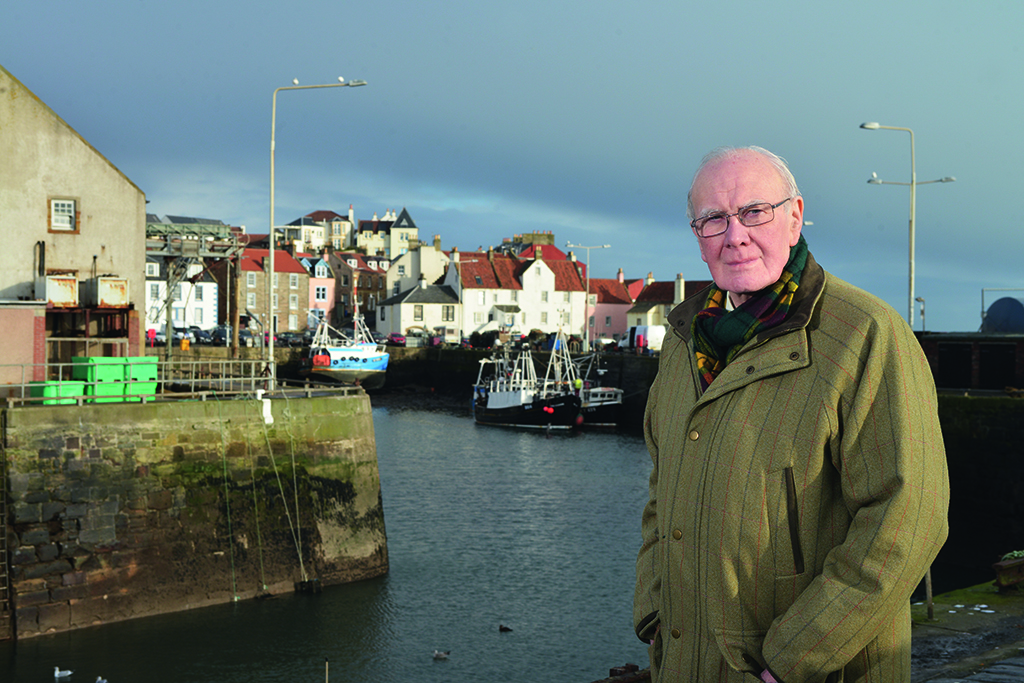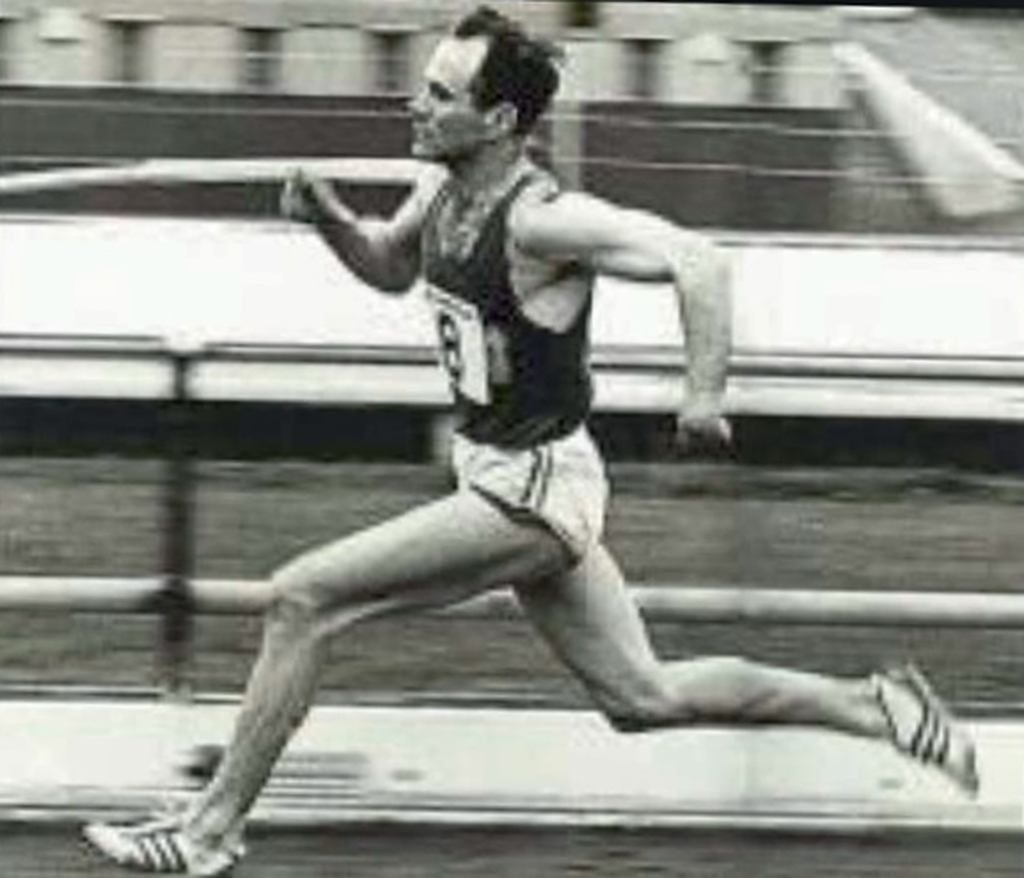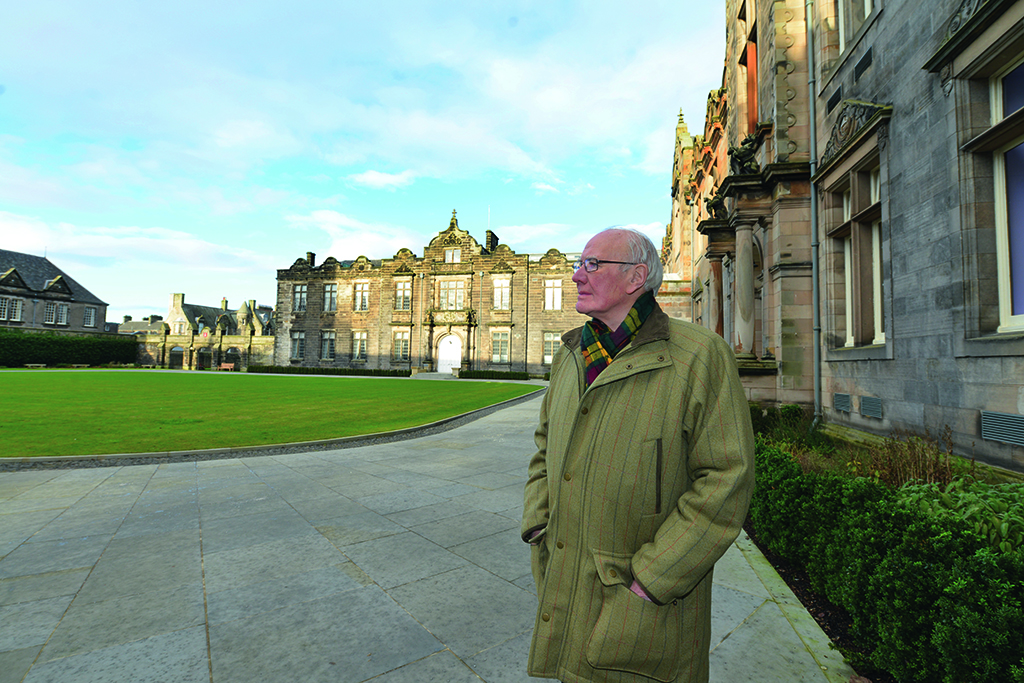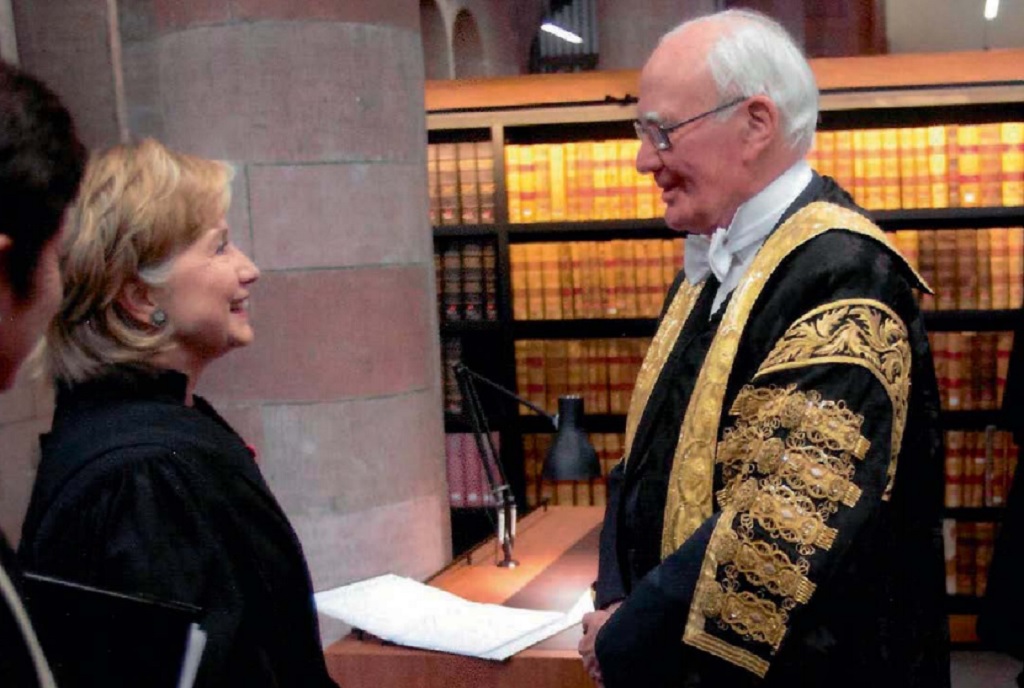
The life and times of Ming Campbell
Ming Campbell has known success in athletics, law and politics, and he also hit the target when he decided to make Fife his home.
I was born in Glasgow in 1941. My mother spent the fortnight before I was born in an air-raid shelter at Glasgow Academy but on the night I arrived the doctor came with a bottle of whisky and said, ‘Whatever we do, we’re not going to the air-raid shelter.’ So he and my father drank the whisky while I was delivered.
My mother and father were both children of the Depression and education was very important to them – they shared a sense of disappointment that they couldn’t have gone to university. My father wanted to be a doctor, but he left school at 14 to become an apprentice joiner. His mother was very resistant to the idea of a university education, so he taught himself – he went to night school and things like that.
My mother wanted to be a school teacher but her mother, who was a widow, had a post office in Dumbarton and when my mother was 16 she was made to go and work there. She had to give up hockey, which she was very good at – her contemporaries said she could have played for Scotland. She was enormously keen on sport and therefore very encouraging to me. I think that’s where my love for athletics came from.
So, because of their backgrounds, my parents were very positive about education. I started off at the local primary but they were determined to do better than that, so I went to Hillhead High, which in those days was a local authority school for which you paid fees. It was the equivalent of a grammar school. We wore school uniforms, school caps, and we played cricket in the summer and rugby in the winter.

Ming was born in Glasgow but says he’s a ‘Fifer by self-adoption’. (Photo: Angus Blackburn)
It was a sort of West End bourgeoisie, I suppose. People say I’m obsessed with politics, but my real obsession is sport. I love rugby – I played a bit between school and deciding on serious athletics.
The trick question is, to which title did Jim Clark beat Ming Campbell, but Ming Campbell beat Jackie Stewart? The answer is Scottish Sportsman of the Year 1965. I lost to Jimmy, who I knew quite well – he was born in Kilmany in Fife – and I liked him very much.
It was always assumed that I would go to university, and I did. I wanted to be a lawyer and I got an MA and an LLB. It was while I was at Glasgow University that I started running rather well. I ran the 200m for the Great Britain team at the 1964 Olympics in Tokyo, and in 1966 I captained the Scotland team at the Commonwealth Games in Jamaica.
In the year I went to the Olympics I was studying for my second degree, doing a solicitors’ apprenticeship at a firm in Glasgow, and was president of the University of Glasgow union. Nowadays people laugh at you if you try to do all these things, but then it was the way of the world, or it was for me, anyway. I debated too, along with John Smith and Donald Dewar, who were absolutely outstanding student debaters.
I won a scholarship to Stanford University in America, to do a postgraduate at the law school. I thought, ‘California, fast track, good training companions,’ so I went there and combined athletics and law – that was the way you did it in those days, there was no question of being a full-time professional athlete.
When I was at Stanford I spent less and less time in the library and more time on the track. I broke the British 100m record twice in a week. When I came back I really couldn’t reconcile myself to training in Scotland. There were no all-weather tracks or indoor facilities – the tracks were cinder and they were either too wet or frozen to run on, so it was training in a gymnasium or running on the roads trying to keep fit. I decided that I’d had my shot – I’d broken the British record, after all. What more was there to come?

Ming Campbell broke the British 100m record in 1967 (Photo: Ming Campbell)
I’d always had a hankering of going to the bar and my father said he would support me while I went to do what we call ‘devilling’ – a pupillage in which you’re signed up to a member of the body with a wide range of experience. Essentially you did his donkey work. I was offered the High Court bench in 1996, but by that time I was an MP and I turned it down.
I first stood for Parliament in 1976 and campaigned, unsuccessfully, for 11 years as a candidate for the Liberal Democrats. I finally got elected in North East Fife in 1987 and was MP there for 28 years. My original intention had been to do two parliaments and then leave, but I got hooked.
I became leader of the Liberal Democrats in 2006. The general election was supposed to happen in autumn 2007. We’d hammered out the manifesto and it was ready to go, we were all set. I was on my way through to Glasgow for a one-day conference when my press officer rang and said that Gordon Brown wasn’t going to call an election after all.
In 2007 I was 66. There was already the odd ripple coming back to me, saying, ‘Oh, you’re standing again?’ I thought, if people are beginning to think like that… Once a narrative gets established it can only get worse because I can only get older. It was disappointing because we’d been through fire, flood and tempest and come out the other end, but it was my time to go – I had to give my successor enough time to prepare.
I certainly regard myself as a Fifer. I’m a Fifer by self-adoption. My parents used to take a house in the East Neuk in the summer, so we’d been to places like St Monans and Elie, and I’d been to St Andrews a couple of times to run.
When I was elected, we bought a cottage in the area. There was still mining and heavy industry like steel at that time, but these dropped off. Fishing was a big part of the area back then. I didn’t know much about it and I had no direct experience, but I wanted to understand. Every village is very different, but they’re tight communities. Seafaring communities are God-fearing communities and they have every right to be – we’ve had our tragedies over the years. There’s only one serious working harbour in the East Neuk now, at Pittenweem.
At St Monans there are a couple of one-man boats that fish for lobster and crabs and things like that, but there are no white fish left. At Pittenweem they’re catching prawns.

At St Andrews University, Ming is interested in the students (Photo: Angus Blackburn)
St Andrews University was something I understood and I knew a bit about farming; I have a stepson who farms in East Lothian and I’d done some legal work in agricultural law. Fishing was the thing I had to get my head around, especially once I became an MP. I tried really hard to be its champion. The villagebased industry tends to be forgotten under the pressure of the big boats that fish on an industrial scale out of Aberdeen, Peterhead and Fraserburgh. What happens at Pittenweem is 10 metres and under, which allows them to escape some of the more rigorous of the EU regulations, but it does mean there is a limit to how far they can go out.
We bought the house in Fife, and my wife Elspeth and I worked our socks off for four years. In the 1992 election, I was up against Mary Scanlon, the Tory candidate. On the night of the vote, I took Elspeth to the Peat Inn for dinner, and we were nervous as kittens – the first defence is always the most difficult. The Conservatives were targeting it and John Major came to Cupar – I was told to have nothing to do with this and was kept well away, but I had a lot of students helping me, including one chap who was 6ft 4in – he and a number of others managed to inveigle their way into the crowd where they held up Lib Dem diamond placards.
I was re-elected, which was very rewarding because it felt like I’d been accepted in Fife. I love the East Neuk. I love the majesty of Dunfermline Cathedral, which is just extraordinary; I like the buzz of St Andrews and also the down-to-earth nature of people in Cupar.
Fife really is a wonderful place. There’s a huge amount of history attached to the area, which I find absolutely fascinating. There are many wonderful historical places: Kellie Castle, Hill of Tarvit, and of course Falkland Palace. I’ve always found the ruin of the cathedral at St Andrews enormously impressive – imagine building that. Then on a smaller scale there’s St Salvator’s Chapel, the chapel at the university.
There’s a lovely bit up around the Loch of Lindores on the way to Newburgh that people simply don’t know about. I love the Forth coast too. Really, you’ve got everything in Fife: the sea, the river, fishing, agriculture. You’ve got these two substantial towns in St Andrews and Cupar, but then you’ve got these villages as well. The really interesting thing about politics is the people – you get to know the different communities and the people within them.
Balancing one end of the constituency with the other could be a challenge, but you just have to work hard. When you get asked to do something in Newport or Tayport, you do it; and if you get asked to do something in Falkland or Pittenweem on the same day, you do that as well. Elspeth managed my diary extremely well and we covered the ground.

Ming Campbell with Hillary Clinton
If you’re a Member of Parliament, you’re automatically a trustee of the links at St Andrews. I don’t play golf because when I was younger there wasn’t time. After about a year of being married I said to my wife, ‘I think I might get some golf clubs,’ and she said, ‘What?!’ I said, ‘Perhaps next year then…’ and in the way of these things I never did.
I was a trustee of the Old Course for 28 years and never once struck a ball on it. It was quite good because I could say with complete justification that I was totally impartial. Of course, golf is a hugely important part of St Andrews and I very much enjoyed being involved in that.
I stood down as MP, but the area is still very important to me. I’m Chancellor of St Andrews University, which is a lovely thing because you have neither responsibility nor authority – you do the nice things. I’m always bowled over by the enthusiasm, promise and joie de vivre of the young people. I go and talk to the international relations club and things like that, and they’re very smart. It’s very good for me and I hope it’s of some benefit to them.
The 600th anniversary celebrations came to an end recently and they were enormously successful. The Duke and Duchess of Cambridge came to the launch and did a big dinner for us in London and New York. They were wonderful. We gave Hillary Rodham Clinton an honorary degree during the celebrations and she gave a brilliant graduation address.
I’ve now been made Lord Campbell of Pittenweem. You have the opportunity to specialise in the House of Lords, so I’m going to pursue my interest in foreign affairs, defence, constitutional change and human rights. These are the things I’m particularly interested in.
In the Lib Dems we’ve always argued for 80% elected in the Lords, along with people who have special experience, so I’ll also take the chance to raise calls for its reform as often as I can.
(This feature was originally published in 2016)
TAGS

